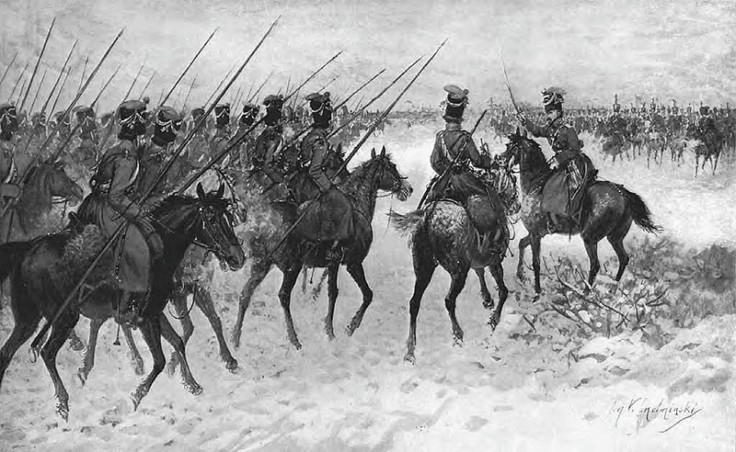Cossacks In Moscow? Legendary Warriors To Crack Down On Street Vendors, Bad Parking

The Cossacks are coming to Moscow.
It sounds serious, but there’s no cause for alarm just yet. These fearsome warriors won’t be responding to any invading forces or anarchist criminals, as they have in more trying times of centuries past. Instead, they’ll be cracking down on SIM cards, sunglasses and other unregulated knickknacks.
Russian news outlet Ria Novosti reported on Tuesday that an auxiliary security force made entirely of Muscovite Cossacks will be hitting the streets of the capital city shortly. They won’t be working as police officers – more like officers’ assistants. Their main task will be to clamp down on unregulated street hawkers that are all too common in the capital city.
The Cossacks will also patrol private areas to keep an eye out for other violations like illegal parking or public disturbances.
It’s an interesting idea; local historians will certainly get a kick out of it. But some of Russia’s liberal citizens are worried that the Cossack patrols will use their new powers to enforce their generally conservative, Christian Orthodox worldview on an increasingly rebellious society.
In general, Russia’s Cossacks are nationalist and fiercely adherent to old traditions. They have a history of fighting bravely and effectively in defense of Russia, from the 2008 Russo-Georgian War all the way back to the Napoleonic Wars of the early 1800s. (However, the Cossacks have traced their history as far back as the 15th century.)
The Cossacks’ heyday was during tsarist Russia, when their legendary fighting and policing skills were put to frequent use. But the 1917 revolution changed their status; authorities no longer saw Cossacks as a separate group – at least, not officially – and a centuries-old culture was momentarily subdued.
But under Russian President Vladimir Putin, whose many critics might call him a modern tsar, Cossack lore has seen a revival.
In many Cossack villages in southern Russia, residents still abide by a strict code of honor that has been preserved for generations. The value of hard work is instilled at a young age. Family values are strong, often to the point of conservative rigidity. Personal responsibility and self-sufficiency are of utmost importance.
There is, above all, a great respect for order and authority. That’s why the vast majority of Cossacks support Putin, and why they are expected to play a valuable role in Moscow as enforcers of law and order.
The Cossacks who sign up for this program won’t be as menacing as they once were. They will not be allowed to arrest people or carry a sword, and will be on foot rather than on horseback. And they won’t be paid with anything other than free municipal transportation passes.
They will, however, have historically influenced uniforms. According to some officials, that’s enough.
As Gennady Afonin, a Cossack chief, explained to Agence France-Presse, "Cossacks don't even need their swords or whips. Their mere posture will be enough."
© Copyright IBTimes 2024. All rights reserved.






















